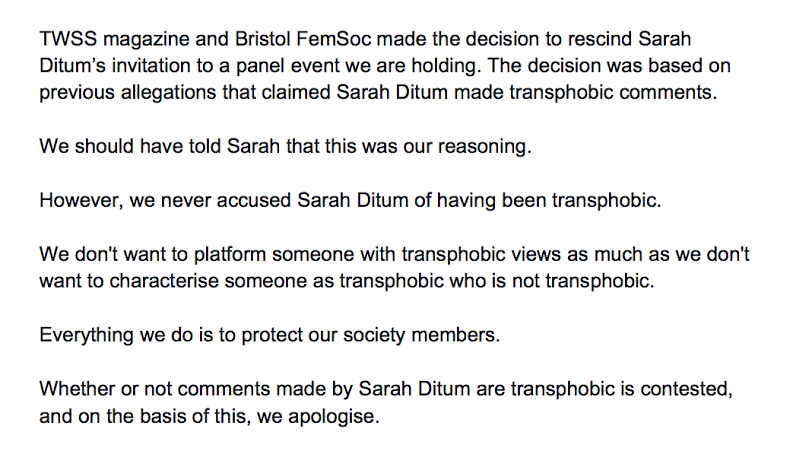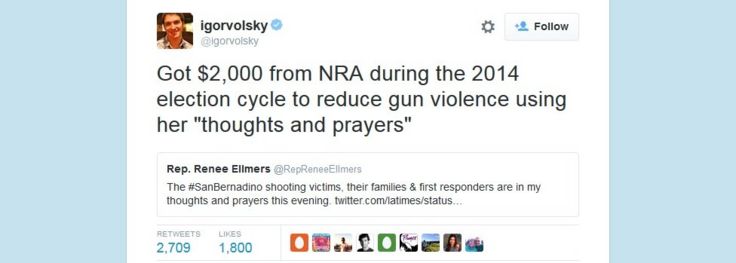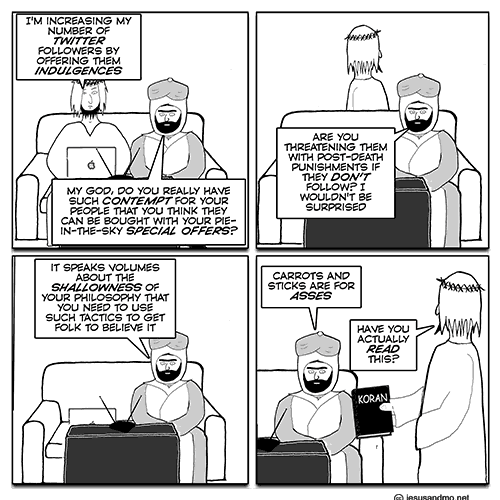I’m sharing some of the comments on the Goldsmiths LGBTQ+ post, in case they get deleted and because they’re good. I’ll leave the names off even though it’s a public post, in case the people don’t want to be spotlighted that way.
One.
If you can watch that debate and insist poor ISOC were attacked, your community has taken a dishonest stance to shield itself from a bully that ISOC is. This cowardice is why freedom of speech, freedom of expression, and even freedom of sexuality are at risk.
You have taken bullies’ side, and the irony of it could not be made up. The representatives of a society which you defend harassed and tried to silence those whose opinions they do not like. If this is not shooting yourself in a foot, then I don’t know what it is.
Finally, if you can support the voice of your own community, but not of the one of the most oppressed communities in the world (apostates), you aren’t looking for equal rights; you are looking to join the privileged.
Post Scriptum, invite their representatives to debate sexuality, and update your “solidarity” announcement then.
Disgusted.
Two.
You’re certainly entitled to your opinion. So are people with opposite opinions. That’s fundamental to a free and open society. I’m struggling to understand how people claiming to be for women’s rights cannot tolerate non-incendiary criticism of forms of imposed modesty in some cultures. You can’t have it both ways. Fundamentally the only true feminist position is that women have a right to wear the hijab and the right NOT to wear the hijab if they so choose. Are you interested in a free exchange of ideas or only hearing ideas you already agree with?
Three, by someone from ASH.
I’m sorry to hear that; we at the AHS condemn anti-Muslim bigotry in the strongest terms, while defending the right to criticise ideas in an academic environment. Having watched the recording of this event I find it impossible to understand how you can stand in solidarity with a small number of ISoc members whose disruptive and threatening actions were condemned by some of the Muslim sisters in the room, at the time.
For anyone who might like to inform their opinion on recent events, Maryam’s lecture has been recorded and is viewable below. I find the behaviour of a minority of the audience members extremely chilling.
The LGBTQ+ Society replied to that one:
Goldsmiths LGBTQ+ SocietyFrom what I could tell, some of the brothers were rude, loud and disruptive, as well as being filmed without their consent, yelled at and racialized. We don’t have to like what they did to support them in the face of the mistreatment that followed.
Opening up that video to the public (which wasn’t necessary for the investigation AHS want), making them appear as ‘extremists’ and racializing them in the title- has left the brothers AND the sisters AND their friends open to islamophobic hate and harassment from across the globe. We’ve been getting comments from Montreal, Florida, Sydney, Seattle…
Given the media attention our union has received recently, making that video public has put our fellow students at risk and impeded our work and study.
Hence, solidarity in this delicate time.
Seattle – that’s probably me. Yes, there is global attention, but why would they be surprised or perturbed by that? It’s a global issue, certainly, and Maryam’s outlook is global. I’ve been following and promoting Maryam’s work for well over a decade. This is not just a little local issue confined to one borough of London.
Four.
I noticed that the Goldsmith’s Muslim group hosted Moazzam Begg. Did you know that he supported the Taliban in my country Afghanistan? In fact, Begg insisted in his memoir that the Taliban were “better than anything Afghanistan has had in the past twenty-five years.”
Do you support that my Afghan sisters were beaten and murdered in a football stadium as a form of entertainment and forced to live under misogynistic rule?
Do you also express solidarity with the other speaker that visited? Hamza Tzortzis? He expressed that “homosexuality” (how clinical and cishet!) should be a crime. Do you believe that women of colour like me from Muslim families are criminals? His philosophical musings also include a supposed link between queer people and sexual assault of children.
You really make me, a queer Afghan of a refugee family, feel very supported.
I’m sure your support of a group of men that harassed my colleague is unwaivering. I mean, hey, women who lived through oppressive regimes can just go fuck off right?
Your feminism is dreadful as it is harmful. Your lack of solidarity with women of colour appalling.
Why? Because she left a religion? And despite her fighting against xenophobia, anti-Muslim bigots, right-wing fascists, you still side with those who harassed her?
Fuck your feminism. Us women of colour have paved their own ways and we will die doing it without support from racists.
Beautifully said.









